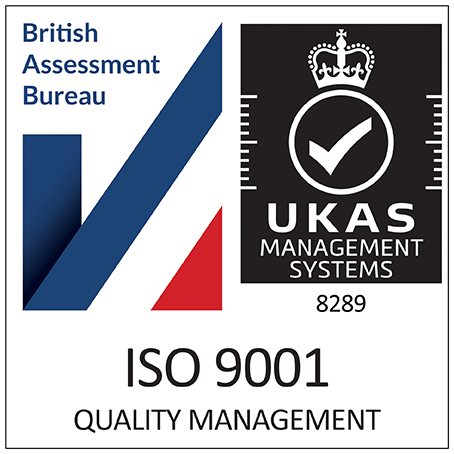By Rowan Morton
What constitutes a “subsequent agreement” to an express declaration of trust?
Back in 2007 the landmark case of Stack v Dowden [2007] UKHL 17 saw the Supreme Court establish a general rule that an express declaration of trust is conclusive unless varied by a subsequent agreement (or affected by proprietary estoppel, fraud or mistake).
Soon after Stack v Dowden, cases began emerging as to what could qualify as a “subsequent agreement” with many practitioners believing that any subsequent agreement must be in writing, and signed, to ensure the same certainty created by the written declaration.
In 2009 a Court of Appeal judgment arrived on the issue.
In Hameed v Qayyum [2009] EWCA Civ 352 the applicant creditor was seeking an order for sale against a property owned by Mr and Mrs Qayyam. Mr Qayyum (H) worked abroad and had purchased the property for Mrs Qayyum (W) to live in, in 1991. They executed a deed declaring that H held his beneficial interest on trust for W entirely meaning he had no entitlement to the enjoyment of or proceeds from the property.
In 2004 H got into legal trouble. H believed, and represented to W, that in order to lift a freezing injunction against him H needed to show substantial assets. For that reason, the couple orally agreed to release the trusteeship reverting to H holding a 50% beneficial interest in the property. W secured borrowing against her 50% share to fund H’s legal fees and H declared his 50% as an asset in pursuit of lifting the freezing injunction.
The applicant creditor relied upon the 2004 oral agreement as creating a constructive trust, a new agreement that overturned the 1991 express declaration. The respondents (H and W) argued that their agreement did not comply with s.53(2) of the 1925 Law of Property Act that required a disposition of an interest in property to be in writing and signed by the person disposing of it, and so the 1991 deed was the conclusive declaration of trust. In the alternative they sought to prove that the oral agreement had been revoked when they realised they had been mistaken as to the need to establish H had substantial assets or that it should be set aside for common mistake or H’s innocent misrepresentation to W.
Judge Purle KC granted the creditor’s application at first instance, stating that the 2004 oral agreement constituted a constructive trust that overruled the 1991 deed and that H and W held the beneficial interest in the property 50/50.
H and W’s appeal was dismissed, the Court of Appeal held that while a binding agreement could be rescinded on the basis of an innocent misrepresentation, in this case it did not prevent the creation of a constructive trust. The 2004 trust had been created by common intention and it had been acted upon to the benefit of both H and W.
Despite that Judgment, 15 years later, the High Court found themselves dealing with an appeal on the same issue, that a declaration of trust was conclusive unless there was a subsequent written signed agreement.
In Nilsson v Cynberg [2024] EWHC 2164 (Ch) the married couple, Mr and Mrs Cynberg, purchased a home in 2001, providing a declaration of trust on their TR1 form that they held the property as joint tenants. They separated in 2009, and verbally agreed that Stuart Cynberg would relinquish his interest in the home, provided Collette Cynberg left it to their children in her will. From that point, Collette covered all property-related expenses including substantial improvements.
The couple finally divorced in 2018. Later that year, Stuart was declared bankrupt, and the trustees in bankruptcy asserted he held 50% of the interest in the property, that would vest in them. They sought to rely on Stack v Dowden arguing that the principle there was that an express declaration of trust could only be altered by rectification, rescission, or a subsequent written signed agreement, or proprietary estoppel.
James Pickering KC sitting as a Deputy High Court Judge dismissed the trustees’ appeal entirely, confirming that an oral agreement, despite not meeting statutory requirements for being signed and in writing, can suffice to displace an express declaration of trust if it leads to the formation of a valid constructive trust. There was sufficient evidence to establish such a trust in 2004.
The key take away from this case is that the common intention, constructive trust relied upon must have come after the express declaration of trust. 23 cases were cited in the Judgment, surprisingly they did not include Hameed v Qayyum. Two from either side are worthy of reference for the purpose of this article:
Clarke v Meadus [2010] EWHC 3117 (Ch) and Bahia v Sidhu [2022] EWHC 875 (Ch) relied upon by the Respondent, both supported the principle that a later equity could overturn an express declaration of trust.
The Applicant trustees placed considerable weight upon Pankhania v Chandegra [2012] EWCA Civ 1438, and Re Iqbal (Nilsson v Iqbal) [2024] EWHC 49 (Ch). James Pickering KC gave them both short shrift. He remarked that Pankhania involved a purported common intention at the time of the property purchase, and so could not be construed as a subsequent agreement, and Judge Burton in Re Iqbal had not been referred to Clarke or to Bahia and so incorrectly held that the subsequent agreement must comply with s53 of the Law of Property Act 1925 (in writing and signed).
The Judgment in re Iqbal also made several references to there being a lack of credible evidence of the alleged oral agreement or common intention subsequent to the declaration of trust, and so an appeal on the s53 finding would most likely have been futile.
The door remains open for parties to pursue a common intention constructive trust subsequent to an express declaration of trust. Obviously there is a significant litigation risk when it comes to informal oral agreements, or conduct in support of a common intention, and parties should be sure to obtain legal advice on the probability of success.
I would like to conclude by saying there is unlikely to be any further pursuit of the need for formal requirements for a subsequent agreement, but you just never know with ToLATA.
Rowan Morton has an established practice at the Chancery Bar, with a particular interest in TOLATA cases involving construction and accounting.
If you require advice, or representation, you can contact the clerks on 01483 539131 or email them at clerks@guildfordchambers.com
Disclaimer
This article has been provided free of charge for information purposes only. Although care is taken to ensure the information is accurate no responsibility is assumed by the author or any member of Guildford Chambers for reliance on the content or the accuracy of such content. The information, and/or commentary, does not constitute legal advice and if you have a legal dispute you should seek advice from a solicitor or barrister about your case. Accordingly, no member of Chambers shall be responsible for any action you take or refrain from taking in reliance of anything in this article or case summary.


